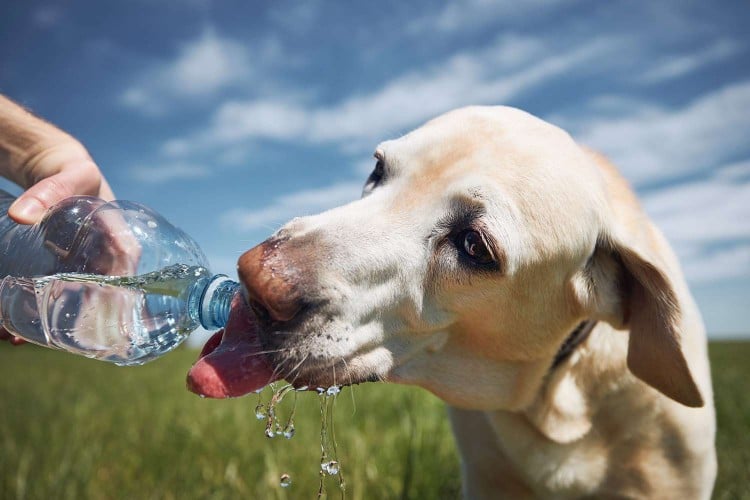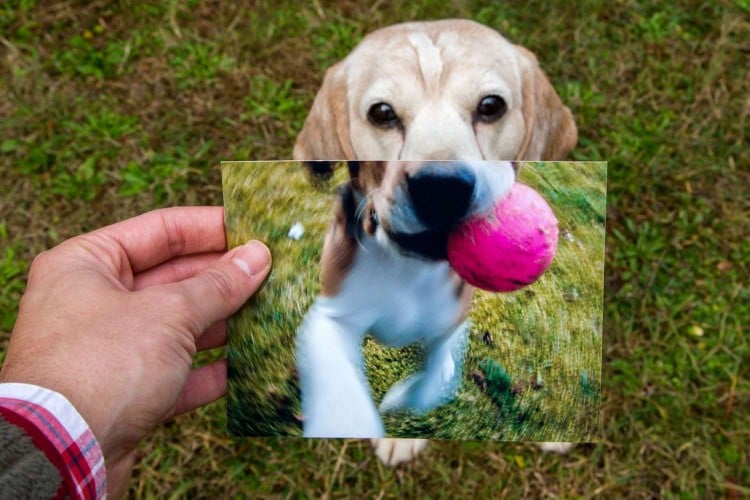Vet-Recommended Home Remedies for Common Dog Ailments
When you live with pets (or kids!), you know that there are times when things just happen. Our dogs and cats can find themselves in predicaments that result in minor injuries, small cuts, or upset tummies. Whether your dog suddenly has unexplained soft-serve-looking poop or your cat decided to go ahead and swat at that pesky bee, you are left with deciding the best way to help your furry companion feel better.
Of course, there are times when you have no other option but to rush your pet to the emergency veterinarian. And whenever in doubt, it's best to play it safe and make an appointment right away with your vet office. But sometimes there are little things we can tackle with simple at-home remedies. Whether it's dealing with a quick bout of diarrhea or maybe dry skin, here are a few at-home treatment options that are vet approved.
A 'Quicked' Nail
Nail trimming can be stressful because you run the risk of cutting the nail too short. If you accidentally trim your dog's nail too short, revealing the quick (seeing blood), don't panic! Remain calm and soothe your pet by providing a gentle, reassuring touch and a few treats. Then, make sure the area is clean and dry. Gently run water over the area and pat dry with a clean cloth or paper towel. Using ice cubes placed in a plastic baggy wrapped in a clean towel, or a small ice pack covered in paper towels, gently apply the cold pack to the area to help ease pain. While applying very gentle pressure to help stop the bleeding, dip the nail into a little bit of flour or baking soda. This acts like styptic powder, helping to stop the bleeding.
To prevent issues with nail trims in the future, practice fear-free nail care on a regular basis so you and your pet get used to the process.
Minor Cuts and Scrapes
To help prevent infection and ease pain, you can apply a little antibiotic cream, says Alicen Tracey, DVM, a veterinarian at Den Herder Veterinary Hospital in Waterloo, Iowa. "You can place a small amount of triple antibiotic ointment on the wound, unless it's thicker than a scrape," she says. "Anything deeper than a scrape requires veterinary advice." You can also apply a cold pack or ice cubes wrapped in a clean towel to the area to help reduce pain and swelling.
A Bit of Diarrhea
For a dog that's experiencing mild diarrhea due to puppy teething or a sensitive stomach, you often have some helpful options available right in your kitchen. For a bit of diarrhea (and constipation, too), you can try adding pure pumpkin (not pumpkin mix or spice!) or a little brown rice to their dinner. Combine 1–4 tablespoons (depending on the size and weight of your dog) of pure pumpkin with your dog's dry dog food and add a little bit of lukewarm water, then mix to help create a nice broth. If your pup doesn't love the taste of pumpkin, you can try mixing in 1/4 to 1 cup of cooked brown rice. It's a good idea to make sure you feed your dog a more bland diet and avoid any heavy treats or big meals until the tummy issues are better, suggests Lawrence Putter, MVD, Medical Director at Lenox Hill Veterinarians in New York, N.Y.
Make sure you consider how long your dog has been having this issue or if she has other symptoms before you try adjusting her diet or adding any new food. If your dog's diarrhea persists or worsens be sure to make an appointment with your veterinarian.
"The next time you scoop up your pet's poop, pause for a moment and quickly determine whether it looks normal. Also, remember to take a fresh sample on your pet's next veterinary visit to ensure she is parasite-free," notes the American Animal Hospital Association.
Bee Stings
We need bees to keep our planet healthy, but boy, bee stings are no fun for anyone, including your pet. If your pet was unlucky and found themselves on the receiving end of a stinger, you can help them out at home before deciding to head to the vet. Look at the site of the sting and determine if the stinger is still present. If it is, you will need to remove it using small tweezers. Once it's removed, run lukewarm water over the area and then apply an ice pack wrapped in a hand towel to reduce swelling and pain. If you're concerned about an allergic reaction or there appears to be swelling, Tracey suggests giving your pet Benadryl at 1 mg per pound—but be sure to call your vet first.
"There is evidence of xylitol being added to certain Benadryl mixtures—which is toxic for dogs—so those would be ones to avoid," says Tracey, who is also a member of the Daily Paws advisory board.
For any reaction that looks severe, which may include inflammation and redness, hot-feeling skin, itchiness, or shortness of breath, your pet should be immediately seen by an emergency vet.
Dry Skin
We all experience the annoyance of dry, itchy skin, especially in the cold-weather months. Our dogs and cats can suffer from dry skin at certain times of the year, or more so as they age. To help soothe their coats, you can try offering up a bath time that includes oatmeal. Oatmeal is an age-old remedy for our annoying skin, and many doggie shampoos and conditioners include oatmeal as an active ingredient to soothe irritation. You can grind plain oatmeal and mix into a warm bath water and let your pupper soak in for 15 minutes. You can also create an oatmeal-paste of oatmeal combined warm water and apply generously to the coat and rinse off after 15–30 minutes. This option is messy though, so you may find it easier to keep an oatmeal-based shampoo on hand.
If your pet's dry skin comes with wounds, hot spots, lots of itchiness, or severely flaking skin you need to seek help from a veterinarian.
It's important to remember that although many minor conditions can be looked after at home, it's always best to consult with a veterinarian before you try anything new. Never give your pet medications made for humans or Googled remedies without vet approval. Simple things can quickly become worse, Tracey says, so it's always best to play it safe.






